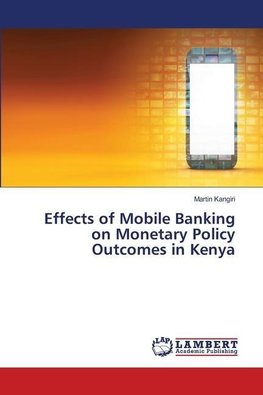
-
 Anglický jazyk
Anglický jazyk
Effects of Mobile Banking on Monetary Policy Outcomes in Kenya
Autor: Martin Kangiri
Mobile banking in Kenya has grown at an increasing rate since its inception in 2007. According to the Communications Authority of Kenya, 93 percent of Kenyans were mobile phone holders and 73 percent were mobile banking users in 2014. Mobile banking has... Viac o knihe
Na objednávku, dodanie 2-4 týždne
56.43 €
bežná cena: 62.70 €
O knihe
Mobile banking in Kenya has grown at an increasing rate since its inception in 2007. According to the Communications Authority of Kenya, 93 percent of Kenyans were mobile phone holders and 73 percent were mobile banking users in 2014. Mobile banking has grown exponentially, increasing from US$1.96 billion in recorded transactions in 2008 to US$17.7 billion in 2013. The usage of bank-integrated mobile products is still new to Kenyans but the use of basic mobile savings is widespread as 23 percent of Kenyans use mobile money at least once a day. Mobile banking promotes financial development, regulates cash balances held by individuals in the economy, and also increases savings by the initially unbanked Kenyan population. The use of monetary policy as a macroeconomic stabilization tool depends largely on the behavior of the demand for money or real cash balances in the hands of economic agents. Empirical views suggest that growth in mobile banking enhances liquidity, which negatively affects monetary policy outcomes in the economy. Other literature argues that innovation such as mobile banking reduces the need to hold currency hence lowering liquidity, which promotes effectiveness.
- Vydavateľstvo: LAP LAMBERT Academic Publishing
- Rok vydania: 2023
- Formát: Paperback
- Rozmer: 220 x 150 mm
- Jazyk: Anglický jazyk
- ISBN: 9786205639320











